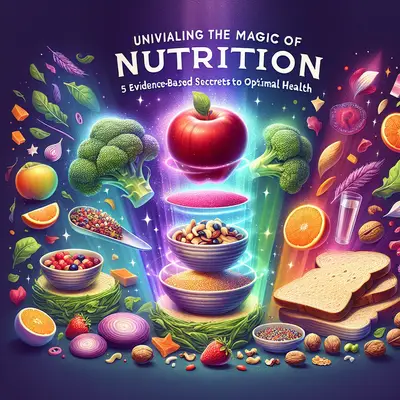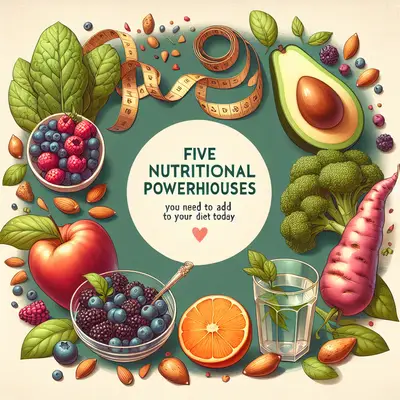1. Probiotics: The Gut Health Game-Changer
Probiotics have been a hot topic in recent years, and for good reason. These beneficial bacteria have been shown to improve gut health, boost the immune system, and even improve mental health. A growing body of research has indicated that a healthy gut microbiome is essential for overall wellness[^1^]. Probiotic supplements, packed with a variety of beneficial bacteria strains, are a convenient way to maintain a balanced gut microbiome.
2. Omega-3 Fatty Acids: The Heart Health Hero
Omega-3 fatty acids, commonly found in fish oil supplements, are renowned for their heart-health benefits. Studies have shown that these essential fats can reduce the risk of heart disease by lowering levels of triglycerides and reducing inflammation[^2^]. As a supplement, they offer a convenient option for those who struggle to get adequate amounts of these fats from their diet.
3. Vitamin D: The Sunshine Supplement
Vitamin D, often known as the sunshine vitamin, is crucial for the maintenance of healthy bones and teeth. It also plays a significant role in immune system health. Unfortunately, many people are deficient in this vital vitamin[^3^]. Vitamin D supplements can help fill this nutritional gap, especially during months with less sunlight.
4. Magnesium: The Multitasker Mineral
Magnesium is involved in over 300 biochemical reactions in the body, making it a true multitasking mineral. From nerve function to protein synthesis, this essential mineral does it all[^4^]. However, many people fall short of the recommended daily intake. Magnesium supplements can help ensure you're getting enough of this vital nutrient.
5. Collagen: The Skin Health Star
Collagen, the most abundant protein in the body, is essential for skin, hair, and nail health. As we age, our bodies produce less collagen leading to wrinkles and brittle nails[^5^]. Collagen supplements have gained popularity as a way to maintain youthful-looking skin and strong nails.
Conclusion
In the pursuit of optimal health, nutritional supplements can be powerful allies. Probiotics, Omega-3s, Vitamin D, Magnesium, and Collagen each offer unique benefits and can help fill nutritional gaps in our diets. As with any health regimen, it's important to consult with a healthcare professional before starting any new supplement routine.
[^1^]: Hill, C., Guarner, F., Reid, G., Gibson, G. R., Merenstein, D. J., Pot, B., ... & Calder, P. C. (2014). Expert consensus document: The International Scientific Association for Probiotics and Prebiotics consensus statement on the scope and appropriate use of the term probiotic. Nature Reviews Gastroenterology & Hepatology, 11(8), 506-514.
[^2^]: Abdelhamid, A. S., Brown, T. J., Brainard, J. S., Biswas, P., Thorpe, G. C., Moore, H. J., ... & Hooper, L. (2020). Omega‐3 fatty acids for the primary and secondary prevention of cardiovascular disease. Cochrane Database of Systematic Reviews, (3).
[^3^]: Holick, M. F. (2007). Vitamin D deficiency. New England Journal of Medicine, 357(3), 266-281.
[^4^]: DiNicolantonio, J. J., O'Keefe, J. H., & Wilson, W. (2018). Subclinical magnesium deficiency: a principal driver of cardiovascular disease and a public health crisis. Open Heart, 5(1), e000668.
[^5^]: Bolke, L., Schlippe, G., Gerß, J., & Voss, W. (2019). A Collagen Supplement Improves Skin Hydration, Elasticity, Roughness, and Density: Results of a Randomized, Placebo-Controlled, Blind Study. Nutrients, 11(10), 2494.



